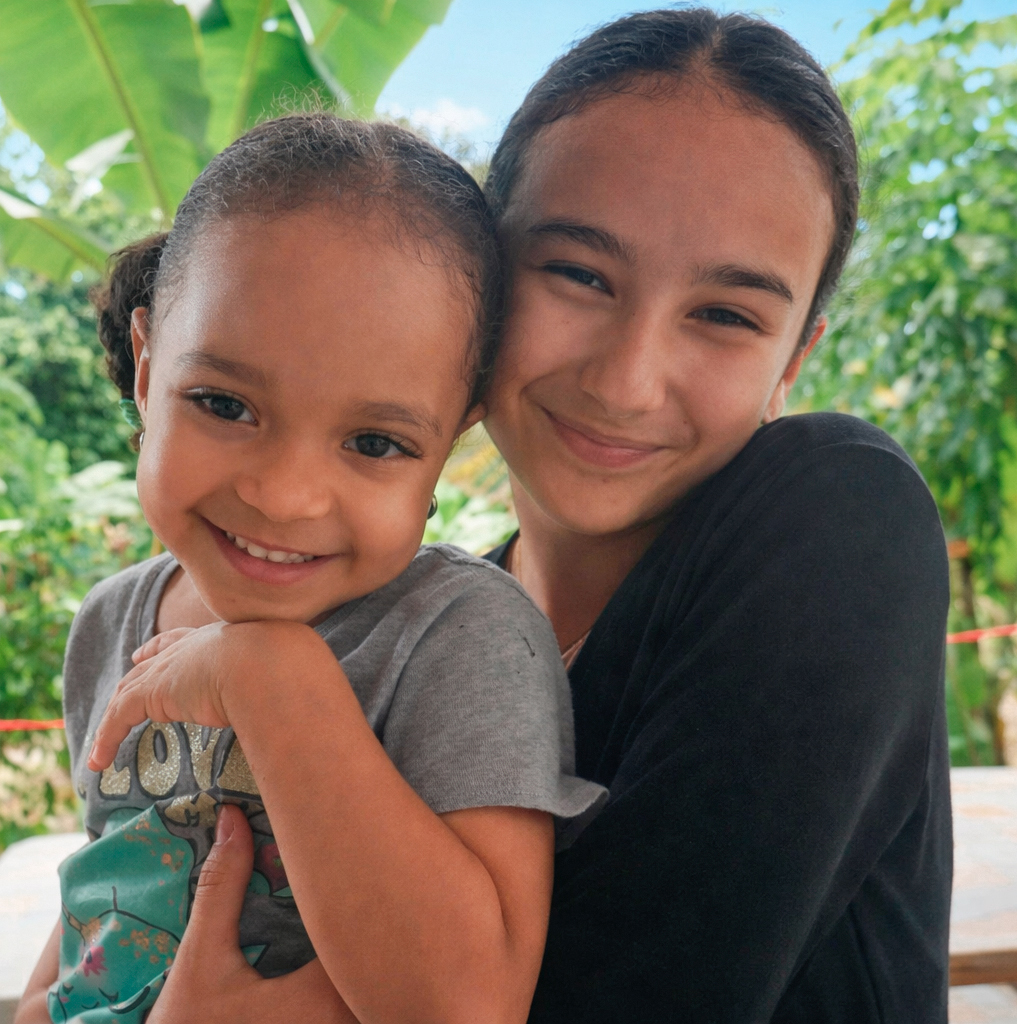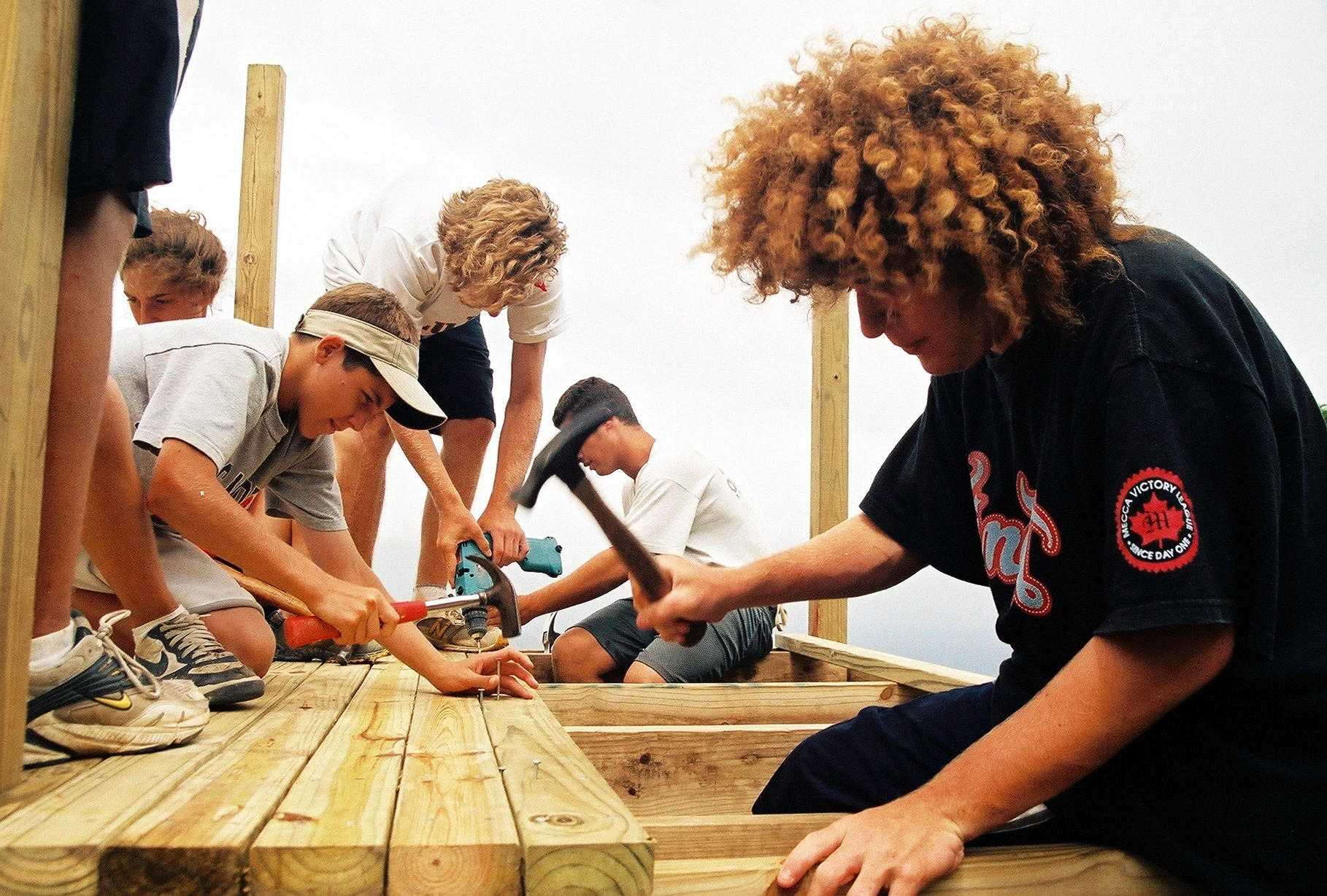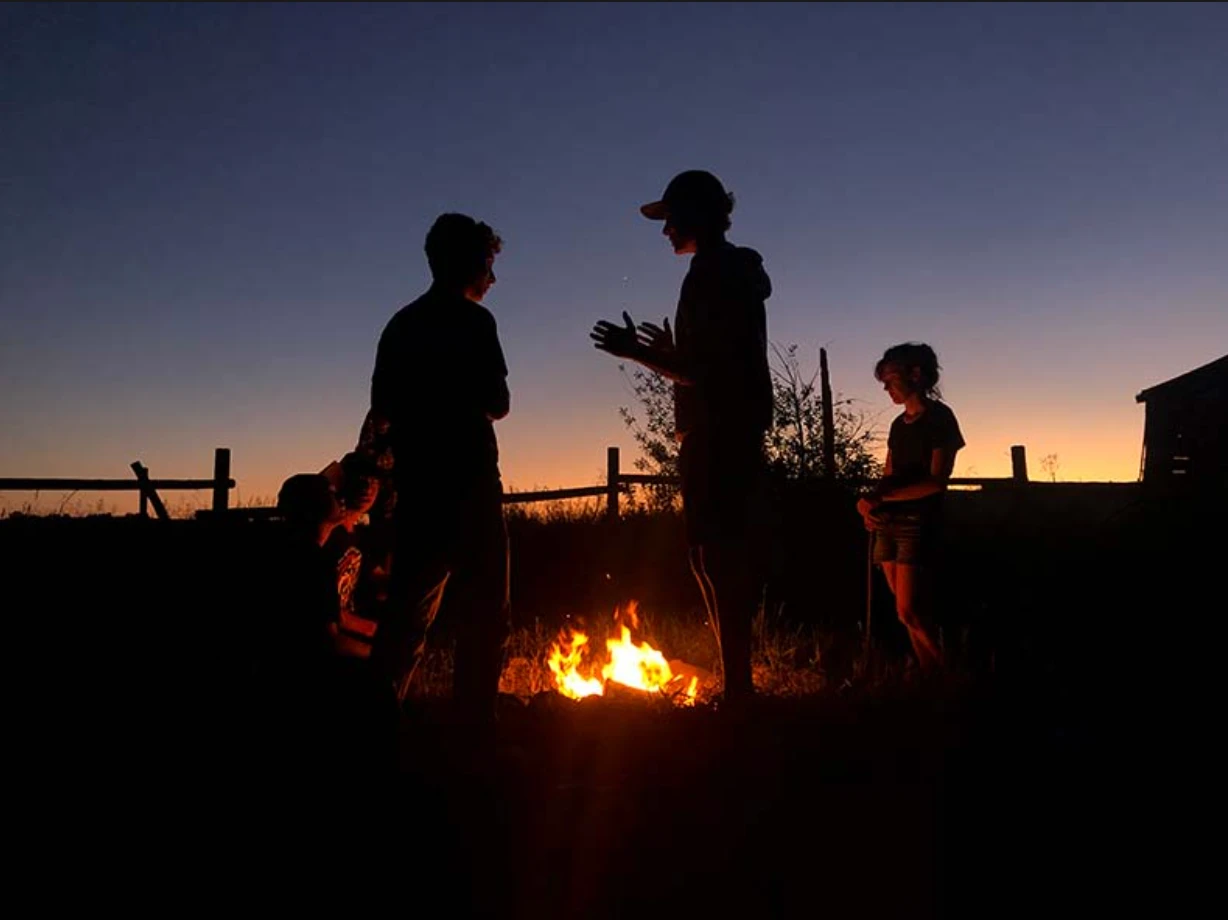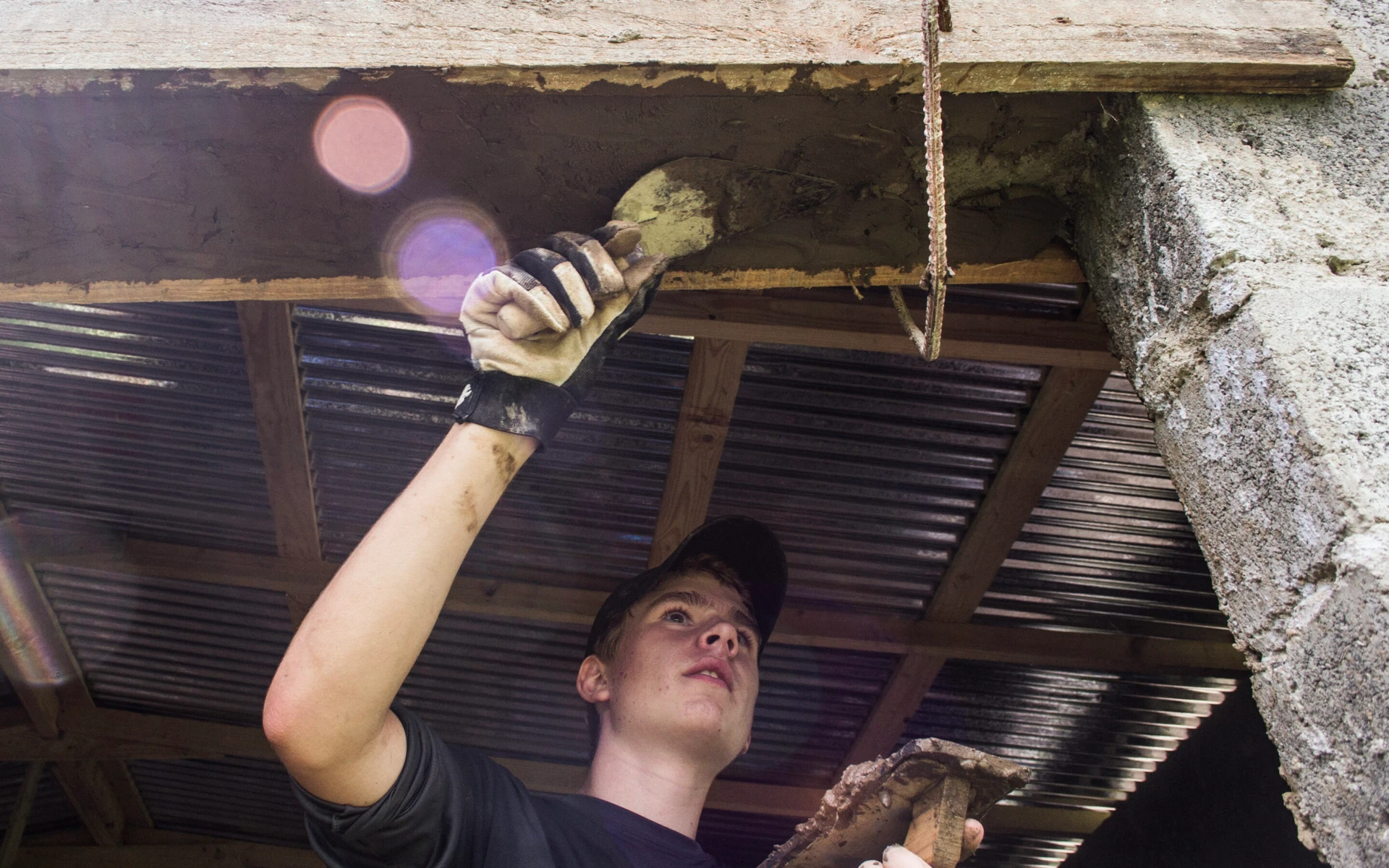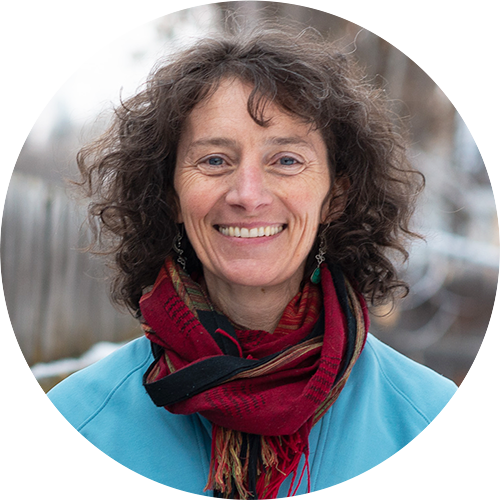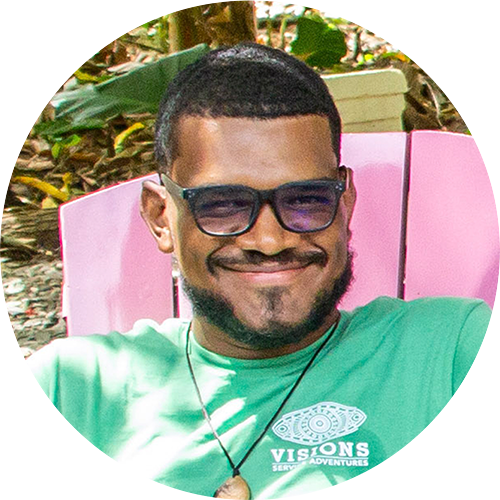By Noam Schimmel
Bus rides to the airport at the end of a group trip are never easy, The faces express an almost uniform melancholy disposition, a blank look that is a guise for the internal rumblings of every person’s emotions and thoughts.
On this bus ride to the airport I am very conscious of my own sadness at the fact that I am leaving. I have been immersed in the culture and life of the Dominican Republic for three weeks with the cross-cultural service organization, VISIONS, and now I’m returning home to a very different country and way of life.
I won’t be able to slip back into my daily routine as easily as I slipped out of it. The burden of change and growth is upon me, and unlike my exuberance on the day I arrived in Santo Domingo, I am now engrossed in thought. On my first day in the Dominican Republic I was like a sponge, passively absorbing all that I could see and hear. On my last day here, raw emotion, critical thought, and self-analysis are jumbling about in my mind and heart in a complex and active mixture.
What has happened to me here? What have I given and what have I learned? My frustrations at the endless poverty here and the overwhelming challenge it presents, my times of happiness, my hours of reflection in my journal—what will all of these become when I return? Will I be different now? How will I cope with returning to a place that in three weeks has changed little, while during these same three weeks I have experienced a tumultuous period of personal growth as a result of my intense exposure to a radically different reality from the one which I have always known?
A quiet ethereal mood sets in, conversation is at a minimum, and I look for some form of escape, or perhaps gentle comfort by staring outside the window. I have traveled on this road many times. The pollution is as thick as always, the people as boisterous, the trees as shockingly tropical.
The men and boys who sell bags of clean drinking water to drivers are trying to make rushed sales on the street as we stop by a traffic light and one is yelling into our guagua (minibus) the price of water. I wonder what constitutes a successful business day for them and how they manage to feed and sustain their families.
The Toyota pickup in back of us is holding a massive pink pig probably on its way to slaughter. For a moment the mood lightens as many of us peek out of the window to get a look.
The line of people outside of the supermarket checking to see if they are winners in the sweepstakes run by the major chicken bouillon company, Is as long as it has been every morning. The sweepstakes feeds on people’s desperate hope for swift betterment, for a personal economic miracle.
A donkey is eating grass in a small open space next to an ice cream shop that has been closed for several days but has finally reopened. The donkey seems content at the moment, but like many of the farm animals and pets in the Dominican Republic he looks weak and thin.
The sun and the clouds have not failed to create their orchestrations today. Massive expanses of foreboding gray cloud cover can be seen and just beyond them euphoric bursts of blueness and sunshine.
Extremes are ever present here. From the torrential rains that came and went with daring swiftness, to the humidity and heat that often left us grumbling bitterly about how oppressive the weather can be on this island.
Life here is extraordinarily difficult. The majority of Dominicans live in poverty which is why so many wish to move to the United States and more than one million have already done so. Unemployment is high and average salaries are $50 a month. Power shortages take place daily because the country doe not have enough oil to burn. Tap water is contaminated by numerous parasites. Thousands of Dominicans are undernourished and cannot afford any medical care, even where it is available. The schools are overcrowded and Dominican youth without financial means often have no way of going to college and bettering their lot in life.
Yet the Dominicans are among the warmest, most generous people, who give unselfishly of themselves and of the little that they own. Their history is fraught with dictatorship, corruption, and brutality. Their heroes are few. Nevertheless these heroes inspire the Dominicans to hope for and work toward a better future.
Dominicans lead every day of their lives with a deliberate happiness and sense of pride in them-elves that is enormously impressive in light of their circumstances. Community is the driving force in their lives. They work together and help each other, creating a society made of a rich fabric of shared concern, effort, and responsibility.
Most Dominicans live without the material comforts that Americans are so accustomed to. They work to survive, to bring food, clothing and other necessities into their homes. The Dominican Republic is a country in transition. After years of dictatorship and electoral corruption the first truly democratic election took place just over a year ago. With it came the ascension to power of a leader who is trying to begin to deal in constructive ways with the myriad problems that plague the country. The problems are daunting and change will come slowly. But there is a real attempt being made to respond to the needs of the Dominican people.
It requires a conscious effort by a tourist not to tie deceived by the country’s beaches, sun and natural beauty. To know the Dominican Republic one must look beyond the beauty and into the lives of it’s people, to learn from them and to work with them.
As the guagua is passing I am thinking back to what I have encountered here and how I have worked here. The constant and omnipresent merertgue music, the hearty meals and the conversations with my Dominican host family. Bulging, undernourished bellies of Dominican and Haitian children in the Dominican Republic’s most impoverished communities called hates where the mortality rate for children under age 5 is appallingly high. Reverberating sounds of the children in our day camp repeating English phrases I took so much pleasure in loudly exclaiming: “How are you?” “Good morning,” “Welcome.”
Dripping sweat stinging my eyes as I carried buckets of cement working with Dominican youth building a community center. The endless expanse of green in the countryside and the crispness of nature as we hiked up El Magote Mountain. The welcoming and goodbye parties the community we lived and worked in held for us in gratitude.
The Dominican child who would not let go of me on the last day of camp and who walked with me as far as he could back toward the school building where our group was staying until he looked up at me and I said “Now it’s time for the final goodbye.” He said “Yes, now is the time” and clenched me tightly, then scurried off toward his house, sad and content at the same time.
The sense of satisfaction one gets from community service and from being exposed to a new culture is unparalleled. The intensity of being and the challenge of living in a place in need of assistance on a wide variety of fronts is rewarding. It makes you revel in your own existence, in your realization that as an individual you are of great importance and consequence in the lives of many others because you give of yourself and embrace the challenges others are facing.
On the night I arrived in the United States, the serenity and order of Logan Airport seemed so awkward to me, as did the heights of Boston’s skyscrapers and the city’s many night lights, on my ride home from the airport. Now, several days later, I am adding to my reflections on my trip. Maples and oaks have replaced palm trees, tranquility has replaced noise and excitement, and that Dominican sense of community and unabashed warmth and friendliness has been replaced with individuality and a certain New England rigidness in daily interactions.
Today, though, I felt for a moment that I was back in the Dominican Republic. I visited the Israeli Consulate In Boston and discovered that the Dominican Consulate was in the same building. I walked in to the Dominican Consulate for a couple of minutes and looked around. There was the flag and the pictures of those who fought for the Dominican Republic’s independence, along with posters of Dominican sights. For a short while I was back on the island. I felt good inside. I looked at the Dominicans waiting in line for assistance and I realized that I had something in common with them. I had lived in their home, learned from them and worked with their youth to better their community. And I am all the better for it.
(Noam Sehimmel is a graduate of Newton North High School. He is spending a year in Israel before be-ginning studies at Yale.)



